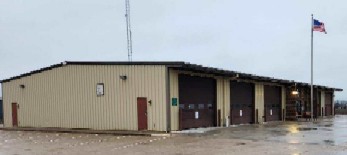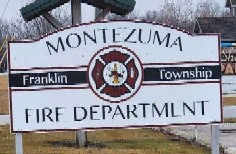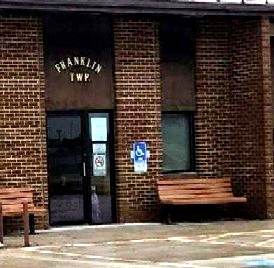|
Franklin Township
|
||||
Township Officers
Fiscal
Officer
Email to: Phone: 419-268-2139 ________________
Zoning Inspector Gary Schwieterman Email to: Phone: 419-268-5820
Franklin Township House Located at: 6805 State Route 219 Celina, OH 45822 Mailing Address Franklin Township Trustees PO Box 90 Montezuma, Ohio 45866
Trustee's Meeting
Franklin Township complies with Ohio Sunshine Law with regards to posting all meeting dates and times. _____________ 3rd Wednesday January - November 6:30 p.m. 2nd Wednesday December 6:30 p.m. Unless otherwise posted
SECTION 4 SECTION 4 SECTION 4 SECTION 4 SECTION 4 SECTION 4 SECTION 4
|
History of Franklin Township
Franklin Township covers (22) twenty-two square miles and is bordered by
the irregular shoreline of Grand Lake, once known as the Grand Reservoir,
to the north. Its east borderline is Auglaize County, with the west border
Butler Township and the south border Marion Township. It is approximately
(6) six miles in length, stretching from State Route 127 on the west to
The Auglaize/Mercer County line. It covers nearly (3 1/2) three and
one-half miles from its northern most boundary to its southern most
boundary.
At
the time of settlement, the Big and Little Chickasaw Indian tribes
occupied the township. Two township streams currently bear their names.
The citizens of the township and the Indians lived peaceably. The Indians
never gave settlers cause for alarm. They lived along side one another for
many years. After the Grand Reservoir was dug, it was an abundant supply of fish. Wild ducks and geese were also plentiful. This gave individuals the prosperous vocation of shipping ducks, geese and fish. It was through this vocation that many farmers paid for their homes and farms. Fish, at this time, went for a very high price, making it an important business. Once the fish and game resource was exhausted, a new wealth was discovered. Oil and natural gas were discovered in the township. More wells were drilled in Franklin Township than any other township of the county. Natural gas proved to be more profitable and many large wells were drilled. This proved to be such a profitable venture that many towns in this part of the state were supplied with gas from these wells. Two pipelines supplied Celina, Greenville, Piqua, Springfield and all nearby towns. The gas era was short lived, with towns reverting to coal and wood.
|
Zoning Inspector Gary Schwieterman Email to: Phone: 419-268-5820
Zoning Meetings By Appointment
The Franklin Zoning Board complies with Ohio Sunshine Law with regards to posting all meeting dates and times.
Zoning Board Members Keith Westrick Carl Guggenbiller Mark Ernst Garrett Dorsten Karen Klosterman Marge Tobe, Clerk _____________
Board of Appeals Hank Kaiser Jack Albers Sandy Niekamp Mark Ernst Keith Westrick, Alternate Marge Tobe, Clerk _______________
Zoning Code and Maps
Zoning Maps by Section Zoning Applications and Permits
|
||


